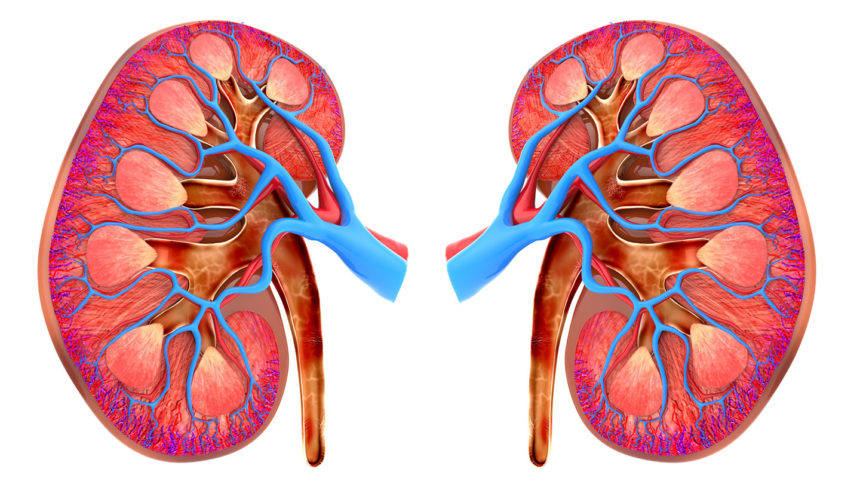
When taken together, commonly indicated drugs may lead to acute kidney injury in susceptible patients with high blood pressure, a new study finds.
Diuretics and RAS inhibitors such as angiotensin converting enzyme inhibitors or angiotensin receptor blockers are often prescribed to treat high blood pressure. And over-the-counter non-steroidal anti-inflammatory drugs (NSAIDs) such as ibuprofen are commonly recommended for managing a variety of problems. Frequently administered together, these drug classes significantly increase the risk of “triple whammy” acute kidney injury (AKI), the authors reported.
The researchers used models of long-term blood pressure regulation and heart and kidney function to predict the risk of kidney injury in these cases. Taken together, the drugs can result in dangerously low glomerular filtration rates (GFR), a key sign of poor or declining kidney function.
What’s more, they found that dehydration, blood vessel response and drug sensitivities may predispose certain patients with hypertension to develop this triple whammy-induced AKI.
AKI is typically associated with higher serum creatinine levels (which indicate a critically low GFR) and a severe drop in urine levels, the authors noted.
Full findings were published in the journal Mathematical Biosciences.
Related stories:
More frequent dialysis in skilled nursing facilities shortens recovery time: study
Switch to race-neutral equation would affect millions of U.S. kidney patients: study




